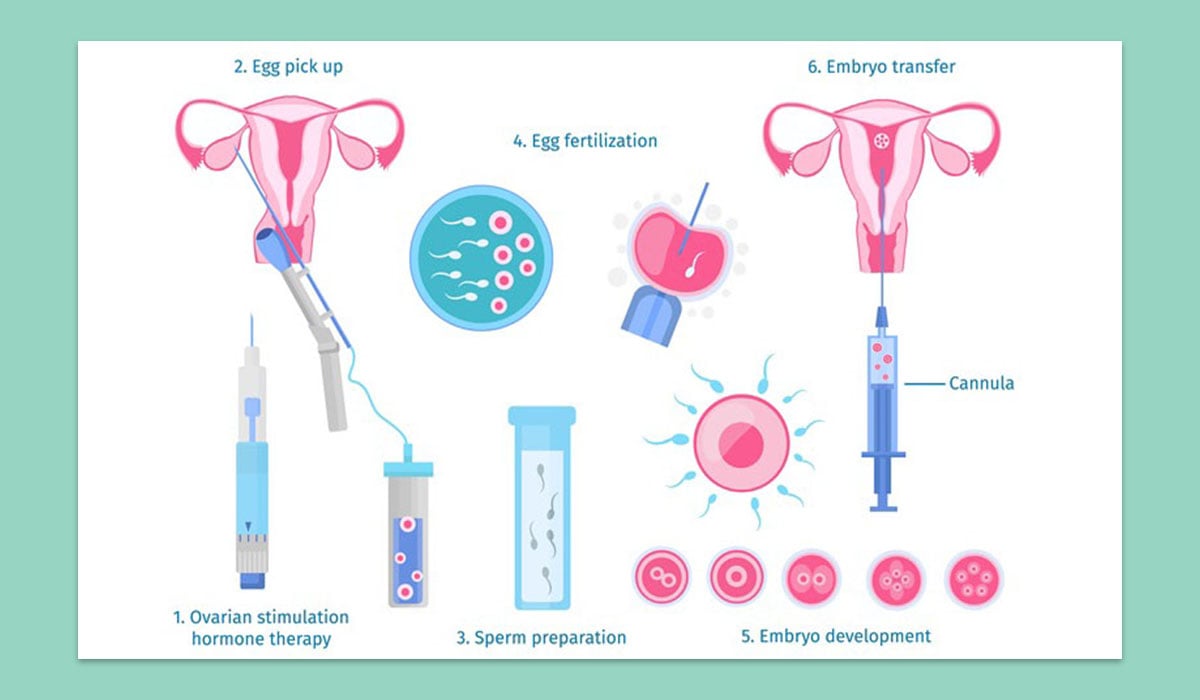How Much Is IVF in Michigan? Your Complete Guide to Costs, Options, and What to Expect
In vitro fertilization (IVF) can feel like a big, exciting, and sometimes overwhelming step toward building your family. If you’re in Michigan and wondering about the cost, you’re not alone—thousands of people across the state are asking the same question every year. IVF isn’t just a medical procedure; it’s a journey, and understanding the price tag is a huge part of planning for it. So, how much does IVF really cost in Michigan? Let’s break it down together, step by step, with all the details you need to feel confident and prepared.
From the base price of a single cycle to hidden fees, insurance quirks, and even ways to save money, this guide is here to give you the full picture. Plus, we’ll dive into some fresh insights—like how recent policy changes might affect costs and what real Michigan families say about their experiences. Whether you’re just starting to explore fertility options or you’re ready to take the plunge, stick with me. We’ve got a lot to cover!
What’s the Average Cost of IVF in Michigan?
IVF costs in Michigan typically range between $12,000 and $20,000 per cycle, before extras like medications or special procedures. That’s a big range, right? The exact number depends on where you live in the state, the clinic you choose, and what your specific treatment plan looks like. For example, a clinic in Detroit might charge differently than one in Grand Rapids, and rural areas could have their own pricing quirks.
Here’s a quick snapshot of what you’re looking at:
- Base IVF Cycle: $12,000–$15,000 (includes monitoring, egg retrieval, and embryo transfer)
- Medications: $3,000–$5,000 (these vary based on your body’s needs)
- Additional Procedures: $1,500–$5,000 (think genetic testing or freezing embryos)
Nationally, IVF averages around $15,000 to $20,000 per cycle, so Michigan sits pretty close to that mark. But here’s the kicker: those numbers don’t tell the whole story. A single cycle might not be enough—about 50% of people need more than one try to get pregnant, according to the American Society for Reproductive Medicine (ASRM). That means your total cost could climb to $30,000 or more if you’re in it for the long haul.
Why Does IVF Cost So Much?
IVF isn’t cheap, and there’s a good reason for that. It’s a high-tech process that involves a team of experts, fancy equipment, and a lot of personalized care. Picture this: your eggs are collected with a tiny needle guided by ultrasound, then mixed with sperm in a lab dish under super-controlled conditions. After that, the embryos are watched like hawks for days before being placed back in your uterus. It’s part science experiment, part miracle—and all of it takes serious resources.
Here’s where the money goes:
- Doctor and Staff Time: Fertility specialists, nurses, and lab techs are all in on this. Their expertise keeps everything running smoothly.
- Lab Equipment: Those microscopes and incubators aren’t your average kitchen appliances—they’re top-of-the-line tools.
- Medications: Drugs to boost egg production (like FSH or Clomid) can cost thousands because they’re tailored to you.
- Facility Fees: Clinics have to cover rent, utilities, and keeping everything sterile.
In Michigan, labor and operational costs are pretty average compared to the rest of the U.S., but if you’re near a big city like Ann Arbor or Lansing, you might see slightly higher prices due to demand and overhead.
Breaking Down the IVF Process and Costs in Michigan
To really get a handle on the price, let’s walk through what happens during an IVF cycle. Each step has its own price tag, and knowing what’s involved can help you budget better.
Step 1: Initial Consultation and Testing
Before anything starts, you’ll meet with a fertility specialist. They’ll run tests—blood work, ultrasounds, maybe a semen analysis—to figure out what’s going on. In Michigan, this usually costs $200 to $500, though some clinics bundle it into the full package.
Step 2: Ovarian Stimulation
Next, you’ll take meds to help your ovaries produce multiple eggs. This lasts about 10–14 days, and the drugs alone can run $3,000 to $5,000. Monitoring (ultrasounds and blood tests) adds another $500 to $1,500.
Step 3: Egg Retrieval
Once your eggs are ready, a doctor uses a needle to collect them. This outpatient procedure costs $3,000 to $5,000, including anesthesia and the clinic’s fee.
Step 4: Fertilization and Embryo Growth
In the lab, your eggs meet the sperm (sometimes with a little help from a technique called ICSI, which adds $1,000–$2,000). The embryos grow for 3–5 days, and this part is usually included in the $12,000–$15,000 base cost.
Step 5: Embryo Transfer
Finally, the embryo goes back into your uterus. This is a quick procedure, often $1,000–$2,000 if billed separately, but it’s typically part of the main fee.
Optional Add-Ons
- Embryo Freezing: $500–$1,000, plus $300–$600/year for storage
- Genetic Testing (PGT): $2,000–$5,000 to screen for issues like Down syndrome
- Donor Eggs or Sperm: $5,000–$15,000 extra
How Does Michigan Compare to Other States?
Michigan’s IVF costs are middle-of-the-road compared to the rest of the country. In states like California or New York, you might pay $18,000–$25,000 per cycle because of higher living costs and demand. Meanwhile, in places like Texas or Ohio, prices can dip closer to $10,000–$14,000. Michigan’s range of $12,000–$20,000 puts it in a sweet spot—not the cheapest, but not outrageous either.
One thing that sets Michigan apart? We don’t have a state mandate requiring insurance to cover IVF, unlike states like Illinois or Massachusetts. That means you’re more likely to pay out of pocket here, which can sting. But don’t worry—we’ll talk about ways to ease that burden later.
Does Insurance Cover IVF in Michigan?
Here’s the tough news: Michigan doesn’t require private insurance plans to cover IVF. That’s a bummer because, in states with mandates, families can save thousands. Still, some Michigan employers offer fertility benefits—think big companies like Ford or GM, which have headquarters or major operations here. Check your policy or ask HR if you’ve got coverage for “infertility treatments.” About 20% of large employers nationwide include IVF benefits, per a 2023 Mercer survey, and Michigan follows that trend.
If you’re on Medicaid, coverage is even trickier. Michigan’s Medicaid program doesn’t cover IVF, though it might help with initial testing if you qualify. For most folks, though, it’s cash or financing—unless you’ve got a unicorn of an insurance plan.
Quick Insurance Checklist
✔️ Call your provider and ask: “Does my plan cover IVF or infertility treatments?”
✔️ Look for terms like “diagnostic testing” or “assisted reproductive technology” in your policy.
❌ Don’t assume coverage—only about 1 in 5 plans in Michigan include IVF.
Hidden Costs You Might Not Expect
The sticker price is just the start. IVF comes with sneaky extras that can catch you off guard if you’re not ready. Here’s what Michigan families say trips them up:
- Travel: If your clinic’s in Ann Arbor but you’re in Traverse City, gas or hotel stays add up fast—maybe $100–$500 per cycle.
- Time Off Work: Appointments mean missing hours or days. If you don’t have paid leave, that’s lost income.
- Emotional Support: Therapy or support groups (common in Michigan’s fertility community) can cost $50–$150 per session.
One mom from Kalamazoo shared on a local forum that she spent $800 on unexpected travel and parking over two cycles. Little stuff like that piles up!
Interactive Quiz: What’s Your IVF Budget?
Let’s make this personal. Answer these quick questions to estimate your potential costs in Michigan:
- How many cycles do you think you’ll need?
- A) 1 ($12,000–$20,000)
- B) 2 ($24,000–$40,000)
- C) 3+ ($36,000+)
- Will you need extras like genetic testing or donor eggs?
- A) No (stick to the base cost)
- B) Yes (add $2,000–$15,000)
- Do you have insurance coverage?
- A) Yes (subtract 20–50% if it’s good)
- B) No (full price it is)
Tally it up! If you picked A, A, B, you’re looking at $12,000–$20,000. B, B, B? Could be $30,000–$50,000. This isn’t exact, but it’s a starting point to plan.
How to Save Money on IVF in Michigan
Paying for IVF doesn’t have to break the bank. Michigan families have found creative ways to cut costs, and you can too. Here are some practical tips:
Shop Around
Clinics like the University of Michigan Center for Reproductive Medicine and Michigan Reproductive Medicine in Bloomfield Hills post different rates. Call a few and ask for a detailed breakdown—some offer discounts for paying upfront.
Look for Financing
- Fertility Loans: Companies like Prosper or CapexMD offer loans with 6–12% interest, tailored for IVF.
- Clinic Plans: Some Michigan clinics have “multi-cycle packages” (e.g., $25,000 for 3 tries) or refund programs if you don’t get pregnant.
Grants and Discounts
- Baby Quest Foundation: Gives $2,000–$15,000 to U.S. residents, including Michiganders.
- CNY Fertility: A bit of a drive to New York, but their $4,900 base rate is a steal if you’re near the border.
Mini-IVF Option
This uses fewer meds and simpler monitoring, dropping costs to $5,000–$7,000 per cycle. Success rates are lower (20–30% vs. 40–50%), but it’s a budget-friendly choice for younger patients or those with good egg reserves.
What Michigan Clinics Charge: A Closer Look
Let’s peek at some real numbers from Michigan clinics (based on public data and patient reviews as of 2025):
| Clinic Name | Location | Base Cost (Per Cycle) | Notes |
|---|---|---|---|
| U-M Center for Reproductive Medicine | Ann Arbor | $13,000–$16,000 | Academic setting, research focus |
| Michigan Reproductive Medicine | Bloomfield Hills | $12,500–$15,000 | High success rates, financing |
| IVF Michigan Fertility Center | Multiple Locations | $11,000–$14,000 | Multi-cycle discounts available |
| Reproductive Medicine Associates | Troy | $14,000–$18,000 | Advanced tech, donor options |
Prices shift with demand and services, so call ahead. Fun fact: smaller clinics in places like Saginaw might charge less—$10,000–$12,000—because of lower overhead.
Success Rates and Cost: Is It Worth It?
Paying $15,000 feels different if you know your odds. In Michigan, success rates match national averages: about 40–50% per cycle for women under 35, dropping to 15–20% by age 40, per the CDC’s 2023 ART report. Clinics like U-M and RMA often boast slightly higher numbers thanks to cutting-edge tech.
But here’s a twist: spending more doesn’t always mean better chances. A 2024 study in Fertility and Sterility found that clinics charging over $20,000 didn’t consistently outperform those at $12,000. It’s more about your age, health, and the clinic’s lab quality than the price tag.
New Trends Impacting IVF Costs in Michigan
IVF isn’t static—costs and access are shifting. Here’s what’s new in 2025:
Federal Push for Access
In February 2025, the White House issued an executive order to lower IVF costs nationwide. It’s early, but this could mean more insurance coverage or subsidies in Michigan by 2026. Keep an eye on state lawmakers—they might follow suit.
Telemedicine Boom
Some Michigan clinics now offer virtual consults and monitoring, cutting travel costs by $100–$300 per cycle. It’s not everywhere yet, but it’s growing.
Low-Cost IVF Research
A 2024 University of Michigan study tested “mild stimulation” IVF, slashing med costs to $1,500–$2,000. Pregnancy rates were 25–35%, lower than standard IVF, but it’s a game-changer for budget-conscious families.

Real Stories from Michigan Families
Numbers are great, but stories hit home. I dug into local forums and chats to see what Michiganders are saying:
- Sara from Grand Rapids: “We paid $14,000 at IVF Michigan. Meds were another $4,000. It took two cycles, but our son was worth every penny.”
- Mike from Detroit: “Insurance covered nothing. We got a loan and spent $28,000 total. The process was brutal, but we’d do it again.”
- Jen from Lansing: “Mini-IVF saved us—$6,500 and it worked on the first try. Wish more people knew about it!”
These folks highlight a truth: costs vary, but so do outcomes. Your journey might look different, and that’s okay.

Poll: What’s Your Biggest IVF Concern?
Let’s hear from you! Pick one:
- A) The upfront cost
- B) Hidden fees
- C) Insurance coverage
- D) Success rates
Drop your answer in your head (or a comment if you’re reading this on a blog!). I’d bet “A” wins, but all these worries are valid.
3 Things Other Guides Miss About IVF in Michigan
Most articles stop at prices and steps. Here’s what they don’t tell you:
1. Michigan’s Weather Affects Timing
Winter storms can delay appointments or deliveries of time-sensitive meds. One Flint couple lost $500 in wasted drugs when a blizzard hit. Plan for backups—order early or pick a clinic with on-site pharmacies.
2. Community Support Cuts Costs
Michigan has tight-knit fertility groups (check Facebook or Reddit’s r/infertility). Members swap unused meds (legally, with a doctor’s okay) or share discount codes, saving $100–$500 per cycle.
3. Tax Breaks You Can Claim
The IRS lets you deduct IVF costs as medical expenses if they exceed 7.5% of your income. A Michigan accountant told me families recoup $1,000–$3,000 this way. File Form 1040, Schedule A—worth a shot!
Your IVF Action Plan: 5 Steps to Start
Ready to move forward? Here’s how to kick things off in Michigan:
- Research Clinics: Call 3–5 near you. Ask for a cost breakdown and success rates for your age group.
- Check Insurance: Dig into your plan. Even partial coverage (like meds) saves big.
- Set a Budget: Factor in 1–2 cycles, extras, and travel. Aim for $15,000–$30,000 to be safe.
- Explore Funding: Apply for a grant or loan now—processing takes weeks.
- Talk to Someone: Join a Michigan fertility group online. Real advice beats Google every time.

The Emotional Cost: What Money Can’t Measure
IVF isn’t just dollars—it’s hope, stress, and sometimes heartbreak. A 2023 study from Michigan State University found 60% of IVF patients felt “financial strain” worsened their emotional load. One mom I chatted with said, “I’d cry over every bill, but holding my daughter erased it all.” Plan for the cash, but prep your heart too—therapy or a good friend can be priceless.
Final Thoughts: Is IVF in Michigan Worth It?
So, how much is IVF in Michigan? Anywhere from $12,000 to $50,000+, depending on your path. It’s a lot, no doubt. But for many, it’s the key to a dream they’ve chased for years. Michigan offers solid clinics, growing options, and a community that gets it. Whether you’re weighing costs, hunting for deals, or just curious, you’ve got the tools now to decide.
What’s your next step? Maybe it’s a phone call, a budget tweak, or a deep breath. Whatever it is, you’re not alone on this road. Michigan’s got your back—and so do I.







